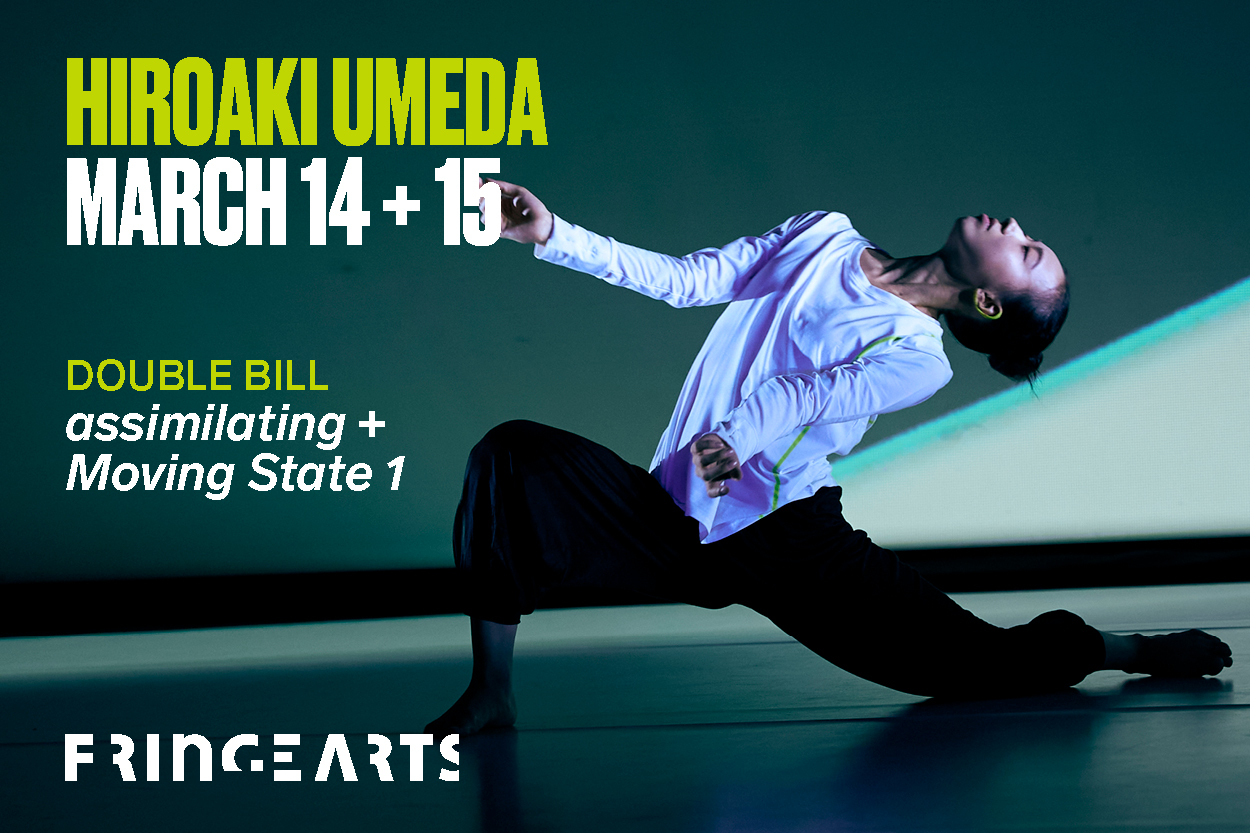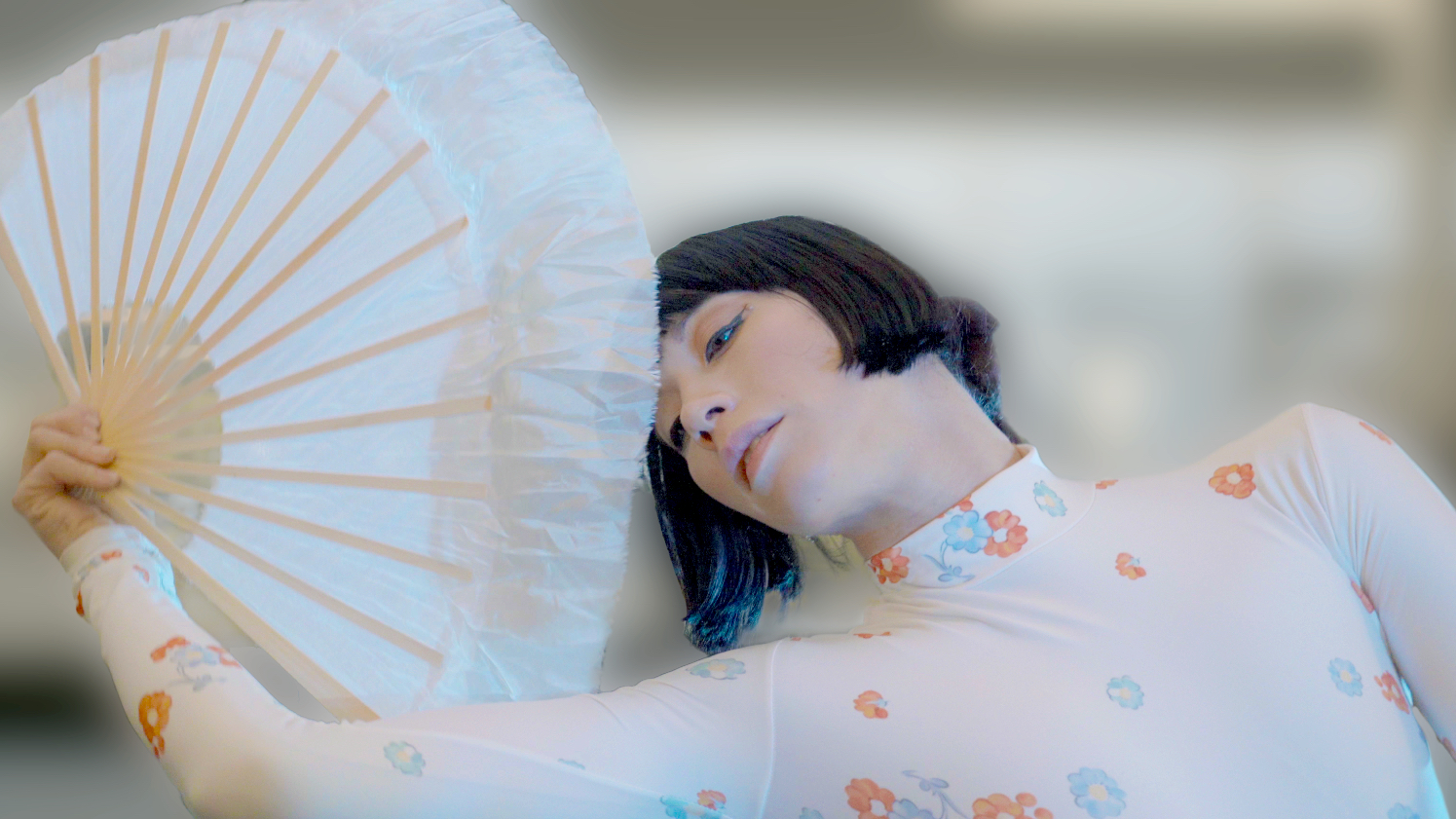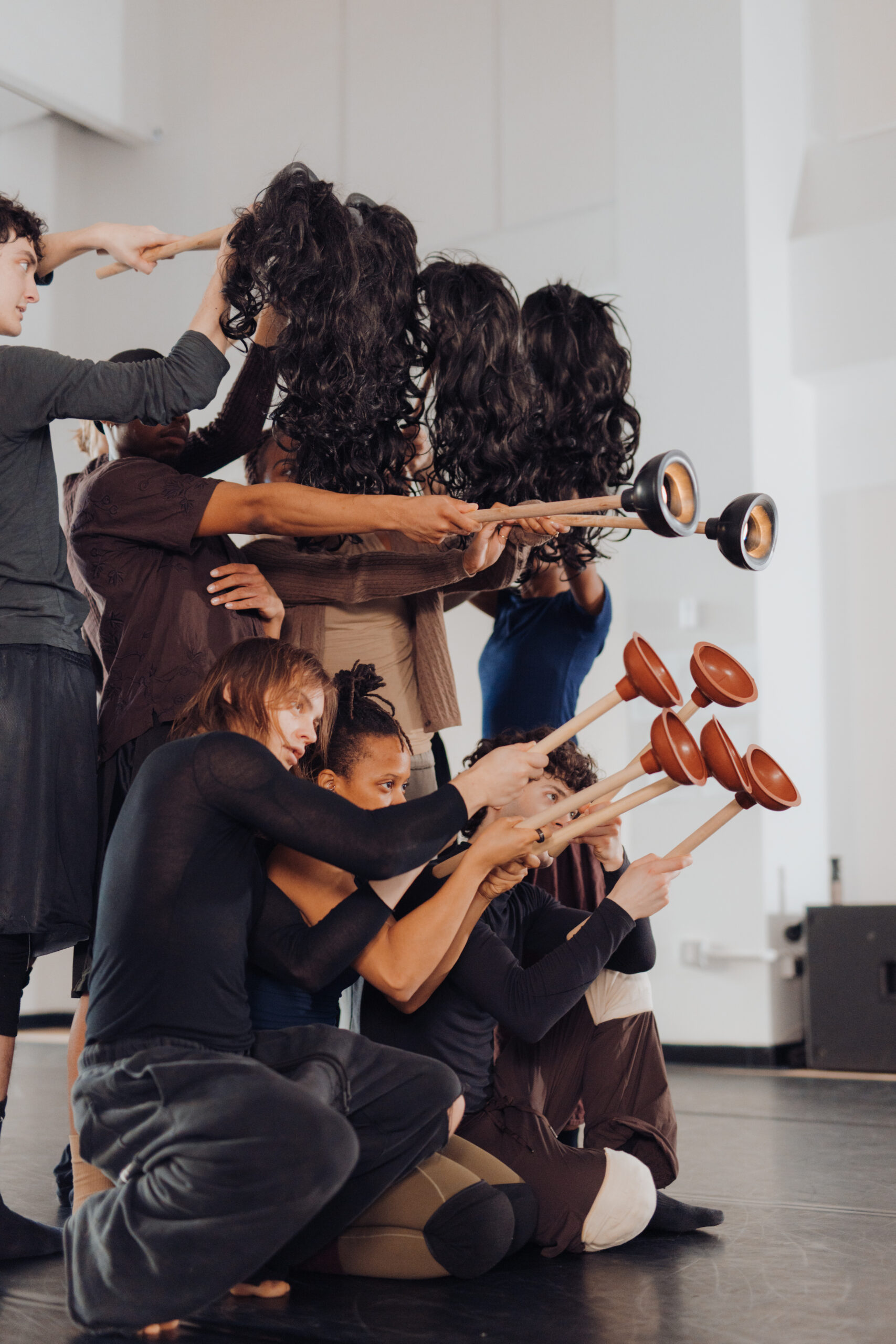December 4, 2011
Dear Editor:
The Thinking Dance project, directed by Lisa Kraus and funded by the Pew Center for Arts & Heritage through Dance Advance, aims to catalyze thoughtful conversation about dance and to cultivate skills of dance writers in our area. They “pledge to write from a place of inquisitiveness and fundamental respect for each artist.” Peter Price’s article, “One from Column A…” is congruent neither with the project’s goals nor with its pledge.
The article purports to be a review of Two Hands, a work of puppetry in which Kun-Yang Lin/Dancers collaborated with the work’s creator and Artistic Director, HuaHua Zhang. Due to significant factual errors and omissions about Kun-Yang Lin’s artistry and the Two Hands project, as well as its disparaging tone, the article ends up denigrating both efforts.
The article incorrectly states that “Kun-Yang Lin advertises his work as a ‘fusion’ of American and Chinese influences…” In fact, Lin does not refer to his work as being bounded by influences that are “American” and “Chinese”. Rather, as one born and raised in Taiwan, he would never restrict his Asian influences to “Chinese.” Nor does Lin use the meaningless word “fusion” to describe his artistry. The multi-cultural and cross-generational impulses that give rise to Lin’s work do not lend themselves to a one-sentence summation. In reducing Lin’s body of work to a sound bite, the article trivializes his artistry, which emerges from 25 years of performing, touring, teaching, creating and investigating throughout Asia, Europe and North America with movement artists of diverse approaches.
The article also does a disservice to Lin and to readers by labeling, describing Lin as “first and foremost a modern dance traditionalist.” Like many dance artists, Lin has struggled over the years to find words that resonate with his embodied craft. “Modern dance traditionalist” is not among the words he would choose nor is he aware of being labeled as such in any of the dozens of articles written about his work. As far as Lin knows, Mr. Price has not seen much, if any, of his choreography (in excess of 75 pieces to date). Nor has Mr. Price ever had a conversation with Lin about his creative process or observed Lin lead a workshop or rehearsal. Mr. Price appears to be bereft of the broad perspective one expects from a writer making such a sweeping generalization. And of what utility is the label in this article? Though styled as a “review”, the article wholly fails to describe any of the movement in Two Hands, much less in a manner that sheds light on what the reviewer means by “modern dance traditionalist.” And without a definition of the term or an explanation of its source, the expression is meaningless. It does not contribute to a deeper understanding of Lin’s artistry or foster curiosity about Lin’s work – surely among the goals of good dance journalism.
What is of greater concern to me, as Executive Director of Kun-Yang Lin/Dancers and a member of our dance community, is the tone of the article and the implications of certain of its references. The article’s title “One from Column A…”, an allusion to the menus of cheap, Chinese-American restaurants, is offensive. It is no less culturally insensitive than “Yo Quiero Taco Bell” would be for an article about a Mexican artist or “Some Cornbread with Your Fried Chicken?” would be for a piece on African-American dance. In addition, use of “advertises” to describe the work of a serious artist (“Kun-Yang Lin advertises his work as…”) and the comment “not everyone’s cup of tea,” are cringe-worthy. Taken together with the trivializing summary and labeling of Lin’s work, they suggest an intent to debase Lin’s artistry and perhaps Kun-Yang Lin himself.
Readers expect a critic to offer her/his own opinion based on objective investigation. To speak on behalf of unnamed others (as in “not everyone’s cup of tea”) in a public forum dedicated to “upping the ante on dance coverage and conversation” is unacceptable at best. At worst, it is a form of public lynching. Whether or not the reviewer is experienced, a competent editor should ensure that unsubstantiated negative commentary such as this and disrespectful references are excised from an article before publication. Why did the editorial staff of Thinking Dance approve this piece as written? Thinking Dance boasts “lots of editor/writer dialogue”, ostensibly to carefully vet and improve the quality of the participants’ writing. Editorial responsibility is particularly important when the opinion is expressed via a platform funded by a serious research institution (the Pew Center for Arts & Heritage) and is supported by our community’s official service organization (Dance/UP).
A fair-minded dance critic must aim to understand the role of the dance artist(s) in the work that the review claims to evaluate. That effort was especially important for this assignment given that the work was not a dance piece. As the writer notes: “this performance is, first, the work of a puppet artist”. While this also raises the question of why the Thinking Dance editor chose this piece for a dance “review” rather than a feature story, it does not excuse the writer’s lack of diligence. At no time did Mr. Price seek clarification of the respective roles or intentions of Lin or Zhang, notwithstanding his admission that he was confused as to “who was responsible for the movement.” That lack of information did not constrain him from making the criticism that “choreographic intention went missing.” Mr. Price might have researched available materials and made inquiries to inform his judgment. Of the two post-show artist conversations, the one on Saturday was particularly well-attended and lively, with much discussion among the audience and the three primary collaborators (Zhang, Lin and Sebastienne Mundheim) as to their respective roles in the project. There also was information on KYL/D’s website, as well as in other online publications, about the training and collaborations with Ms. Zhang that preceded Kun-Yang Lin/Dancers’ participation in the Two Hands project. This background also was contained in KYL/D’s email newsletters disseminated in the weeks leading up to the performances. With such contextualizing information, as well as easy access to Philadelphia-based Lin and Zhang, Mr. Price could have written from a place of integrity and Thinking Dance could have initiated a dialogue about substantive matters of potential interest to dance enthusiasts.
Instead, Thinking Dance has published a desultory article that reveals nothing of note about this collaboration between two mature, Asian-American artists. The conversation that Thinking Dance was intended to engender has been missed. In lieu of an elevated discussion, what remains is an ill-informed attack on a dance artist cloaked in the guise of a review framed in prejudicial overtones. Our community deserves better.
Respectfully,
Rev. Ken Metzner
Executive Director, Kun-Yang Lin/Dancers
Dance Panelist, Philadelphia Cultural Fund
Advisory Board Member, DanceUP
Life Partner of Kun-Yang Lin
Interfaith Minister & Attorney
thINKingDANCE Responds:
thINKingDANCE regrets the use of the headline cited, which has since been changed. We apologize also for erroneously categorizing KYL/D’s work as Chinese and American. This has been amended.
TD is pleased to have a range of writers, enriching our discussion about intention, objectivity, role and individual voice in journalism. Ken Metzner’s letter clearly provides an opportunity to engage as a collective and as a wider community with the expectations placed on dance writing from various points of the field.
No artist wants to have their work dismissed, reduced to jargon, unfairly characterized or factually misrepresented. And no publication should want to present writing that does those things.
Peter Price’s article raises issues that are germane to the field, as do many of the dozens of pieces written to date, and was not composed with malicious intent. As observers have pointed out, it stretches beyond the conventional conception of a ‘review,’ stimulating us to examine how to more accurately frame our writings.
Dance needs those who defend and promote the endeavors of artists, just as it needs those who question, provoke and challenge. We continue to develop our ability to do this responsibly, working with a two-tiered editing process and owning our roles as both community members and critical writers in this project.
We welcome lively participation in our ongoing conversation, and trust that this will be made richer by multiple contributions, provided they are made in the spirit of honest dialogue and inquiry in the opportunity for electronic comments as well as in person.
On December 11 at 2 pm we have invited the community to an open forum with Wendy Perron, Editor-in-Chief of Dance Magazine, and look forward to thinking about this example in a larger context.
Peter Price responds:
The points raised by Rev. Ken Metzner in his letter to the editors of thINKingDANCE gave me much to consider and highlighted issues of deep concern to the dance community. But it is both the public charge of racism and the suggestion that my aim was to disparage Kun-Yang Lin as an artist and individual that most saddens me. For that reason I wish to publicly address Mr. Lin here:
Dear Kun-Yang Lin,
I have spoken to you in person of my respect for your artistry and appreciation for the resources and qualities you bring to the community through your artistic work and through Chi Movement Arts Center, and I reiterate those sentiments now in this forum. I am deeply sorry for any pain my words caused you and am greatly disappointed if you feel I wish you any ill will. I certainly do not.
This was my first attempt at dance writing in a public forum, and as the response from Rev. Metzner and his associates makes clear, there is much I can learn about tone, nuance and style. This is a teachable moment for me and I will take it as such. There is also much I can learn about the context of your work and life trajectory. I reject, however, the characterization of my thinking as racist, and if that rejection is questionable to you I hope you will open a dialog with me to resolve that impasse.
As Rev. Metzner reminds us, thINKingDANCE has pledged to “write from a place of inquisitiveness and fundamental respect for each artist.” That these qualities were found lacking from my writing tells me I have to work harder to match the expectations of my colleagues. Having said that, despite the flaws of my first attempt, I stand behind my article and promise to stand behind any writing I share in this public forum just as you stand behind any work aired under your name.
In closing, I would like to assure you again of my respect for you as an individual and as an artist. There is a famous quote from Martha Graham with which I am sure you are familiar that often comes to my mind in moments of adversity:
“There is a vitality, a life force, an energy, a quickening that is translated through you into action, and because there is only one of you in all of time, this expression is unique. And if you block it, it will never exist through any other medium and it will be lost.”
Thank you Kun-Yang Lin, my colleagues at thINKingDANCE, and all others who keep the channels open and share the unique expression of their humanity out of the generosity of their spirit.
Most sincerely,
Peter Price
From Helen Faller:
December 8, 2011
Dear Editor,
As a fan of Kun-Yang Lin Dancers, I have to say that I found Peter Price’s review of “Two Hands” to be shallow, lazy, flip, and racist. As a reader, I had the feeling that Mr. Price didn’t like the work much, but he couldn’t be bothered to tell us why. As a member of Philadelphia’s arts community, I found Mr. Price’s review to be singularly appalling.
Sincerely,
Helen M. Faller, Ph.D.
Founder
mosaiqa records
www.mosaiqa.comAuthor of:
Nation, Language, Islam: Tatarstan’s Sovereignty Movement.
CEU Press, 2011.
http://www.amazon.com/Nation-Language-Islam-Tatarstans-Sovereignty/dp/963977684X




